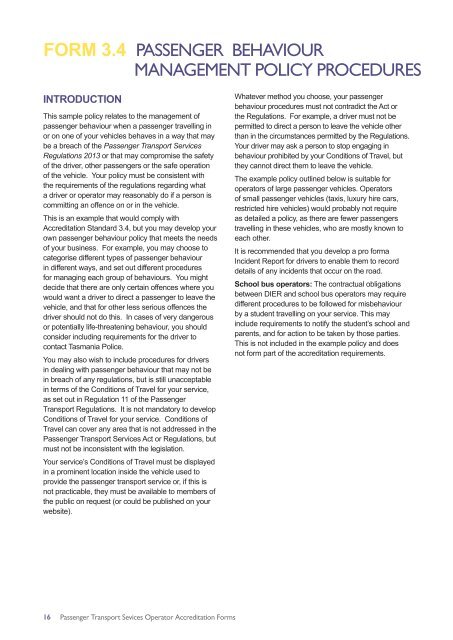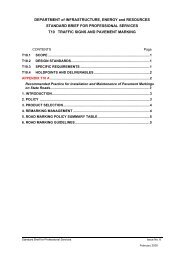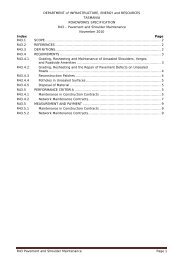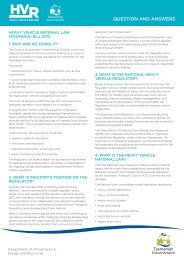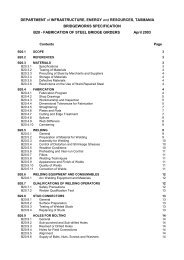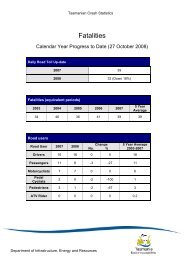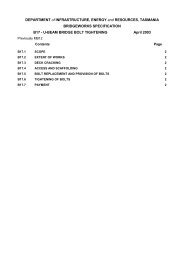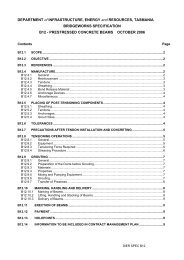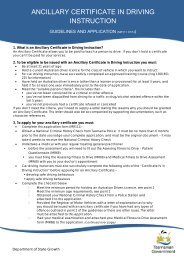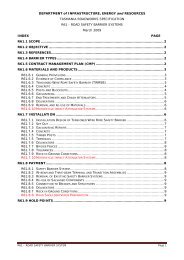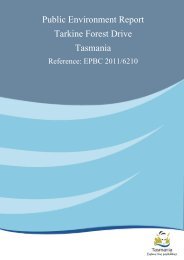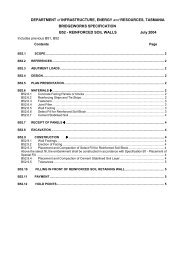Operator Accreditation Manual - Forms - Transport
Operator Accreditation Manual - Forms - Transport
Operator Accreditation Manual - Forms - Transport
You also want an ePaper? Increase the reach of your titles
YUMPU automatically turns print PDFs into web optimized ePapers that Google loves.
FORM 3.4 PASSENGER BEHAVIOUR<br />
MANAGEMENT POLICY PROCEDURES<br />
INTRODUCTION<br />
This sample policy relates to the management of<br />
passenger behaviour when a passenger travelling in<br />
or on one of your vehicles behaves in a way that may<br />
be a breach of the Passenger <strong>Transport</strong> Services<br />
Regulations 2013 or that may compromise the safety<br />
of the driver, other passengers or the safe operation<br />
of the vehicle. Your policy must be consistent with<br />
the requirements of the regulations regarding what<br />
a driver or operator may reasonably do if a person is<br />
committing an offence on or in the vehicle.<br />
This is an example that would comply with<br />
<strong>Accreditation</strong> Standard 3.4, but you may develop your<br />
own passenger behaviour policy that meets the needs<br />
of your business. For example, you may choose to<br />
categorise different types of passenger behaviour<br />
in different ways, and set out different procedures<br />
for managing each group of behaviours. You might<br />
decide that there are only certain offences where you<br />
would want a driver to direct a passenger to leave the<br />
vehicle, and that for other less serious offences the<br />
driver should not do this. In cases of very dangerous<br />
or potentially life-threatening behaviour, you should<br />
consider including requirements for the driver to<br />
contact Tasmania Police.<br />
You may also wish to include procedures for drivers<br />
in dealing with passenger behaviour that may not be<br />
in breach of any regulations, but is still unacceptable<br />
in terms of the Conditions of Travel for your service,<br />
as set out in Regulation 11 of the Passenger<br />
<strong>Transport</strong> Regulations. It is not mandatory to develop<br />
Conditions of Travel for your service. Conditions of<br />
Travel can cover any area that is not addressed in the<br />
Passenger <strong>Transport</strong> Services Act or Regulations, but<br />
must not be inconsistent with the legislation.<br />
Your service’s Conditions of Travel must be displayed<br />
in a prominent location inside the vehicle used to<br />
provide the passenger transport service or, if this is<br />
not practicable, they must be available to members of<br />
the public on request (or could be published on your<br />
website).<br />
Whatever method you choose, your passenger<br />
behaviour procedures must not contradict the Act or<br />
the Regulations. For example, a driver must not be<br />
permitted to direct a person to leave the vehicle other<br />
than in the circumstances permitted by the Regulations.<br />
Your driver may ask a person to stop engaging in<br />
behaviour prohibited by your Conditions of Travel, but<br />
they cannot direct them to leave the vehicle.<br />
The example policy outlined below is suitable for<br />
operators of large passenger vehicles. <strong>Operator</strong>s<br />
of small passenger vehicles (taxis, luxury hire cars,<br />
restricted hire vehicles) would probably not require<br />
as detailed a policy, as there are fewer passengers<br />
travelling in these vehicles, who are mostly known to<br />
each other.<br />
It is recommended that you develop a pro forma<br />
Incident Report for drivers to enable them to record<br />
details of any incidents that occur on the road.<br />
School bus operators: The contractual obligations<br />
between DIER and school bus operators may require<br />
different procedures to be followed for misbehaviour<br />
by a student travelling on your service. This may<br />
include requirements to notify the student’s school and<br />
parents, and for action to be taken by those parties.<br />
This is not included in the example policy and does<br />
not form part of the accreditation requirements.<br />
16 Passenger <strong>Transport</strong> Sevices <strong>Operator</strong> <strong>Accreditation</strong> <strong>Forms</strong>


